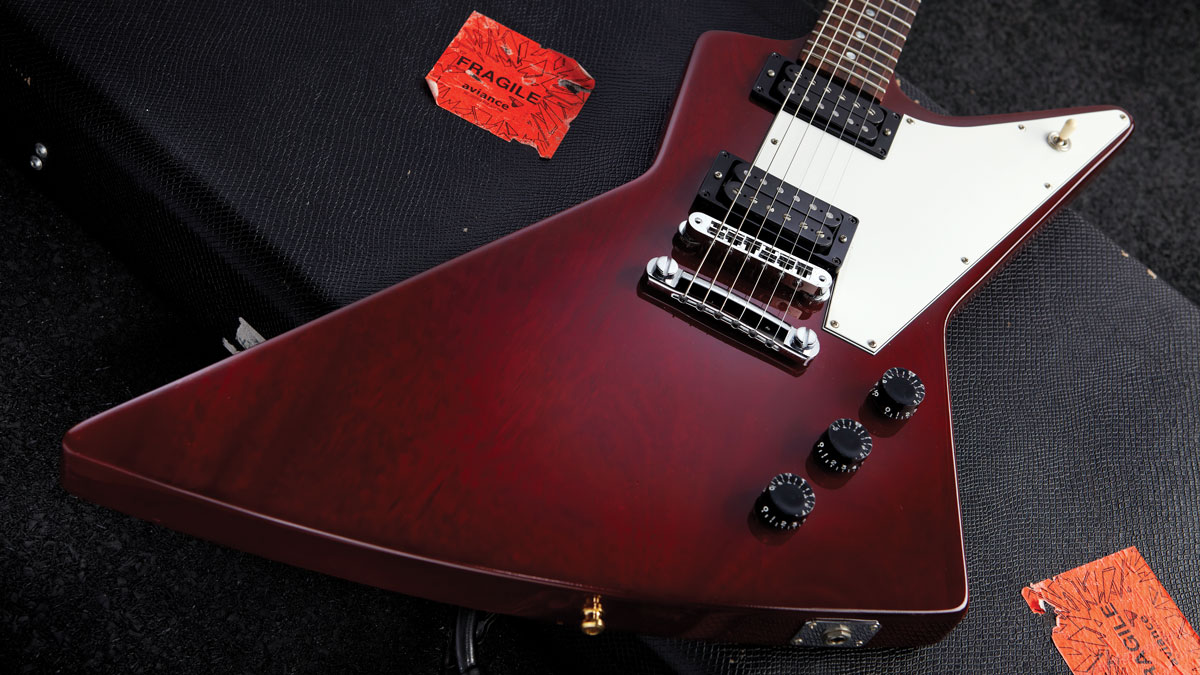Gibson threatened dealers with legal action unless they stopped selling Dean guitars, alleges Dean
Armadillo Enterprises seeks to cancel Flying V, Explorer and ES-335 shape trademarks

In the latest development in the Gibson vs Dean trademark battle, Dean has levelled a number of accusations against the guitar giant, including dealer interference, as it seeks to cancel trademarks of Gibson’s Flying V, Explorer and ES-335 shapes as part of a counterclaim.
This is despite Gibson's recent emollient statement, which promised a shift "from confrontation to collaboration".
Parent company Armadillo Enterprises filed its countersuit on 8 July in the US District Court for the Eastern District of Texas, alleging “tortious interference with Armadillo’s business relationships and/or contracts” in the months prior to the Gibson filing its initial suit on 6 June 2019, according to Guitar.com.

“Prior to filing and/or service of Gibson’s Complaint, Gibson contacted guitar dealers (including Armadillo’s dealers), threatening legal action and demanding that dealers remove all Armadillo guitars with the V, Z, and/or semi-hollow guitar shapes,” the suit reads.
Guitar store Carlino Guitars - based in Medford, Massachusetts - allegedly received cease and desist letters from Gibson in April and May 2019, which not only demanded the removal of Dean V and Z guitars from the store’s website, but also accused them of being party to trademark infringement by stocking Dean guitars, and threatened legal action should it not comply.
Dean believes similar letters were sent to other dealers and retailers, requesting their assistance to “take back control of Gibson’s famous body shape designs” and encouraging that they report anyone “that you believe uses Gibson’s trademarks without authorisation” via Gibson reps or the company’s notorious online form.
The activity resulted in calls from dealers who were “concerned and afraid to continue to deal with Armadillo”, says the company.
Want all the hottest music and gear news, reviews, deals, features and more, direct to your inbox? Sign up here.
Leave a mark
Crucially, Armadillo has sought to throw out the trademarks for the Flying V, Explorer and ES-335 body shapes, thus invalidating Gibson’s claims.
“The above designs have been prominently used and promoted for years and, in some instances, decades,” the suit reads.
“All the while, Gibson sat on its purported rights and failed to object.”
To suggest that famous musicians like Michael Schenker, Eric Peterson, Christian Martucci, and John Connolly have openly promoted, played, and endorsed spurious, ‘counterfeit’ products on stages across the world is absurd
Dean countersuit
The fact that Dean’s own models - some of which date back to 1976 - have been produced for decades also forms part of Armadillo’s case.
“Armadillo’s product shapes are commonplace and are all branded with its distinct, well-known Dean and/or Luna house marks and distinct-looking headstocks,” the motion reads.
“To suggest that famous musicians like Michael Schenker, Eric Peterson, Christian Martucci, and John Connolly have openly promoted, played, and endorsed spurious, ‘counterfeit’ products on stages across the world is absurd.”
Armadillo’s counterclaim seeks the cancellation of the Gibson’s Flying V, Explorer and ES-335 body shape trademarks, and the “maximum damages permitted by law” for Gibson’s alleged interference with Dean dealers.
Dean’s case could be bolstered by the fact that Gibson's appeal to trademark the Flying V body shape in the EU was rejected earlier this month.
MusicRadar has reached out for comment from Gibson on this latest development.
Mike has been Editor-in-Chief of GuitarWorld.com since 2019, and an offset fiend and recovering pedal addict for far longer. He has a master's degree in journalism from Cardiff University, and 15 years' experience writing and editing for guitar publications including MusicRadar, Total Guitar and Guitarist, as well as 20 years of recording and live experience in original and function bands. During his career, he has interviewed the likes of John Frusciante, Chris Cornell, Tom Morello, Matt Bellamy, Kirk Hammett, Jerry Cantrell, Joe Satriani, Tom DeLonge, Radiohead's Ed O'Brien, Polyphia, Tosin Abasi, Yvette Young and many more. His writing also appears in the The Cambridge Companion to the Electric Guitar. In his free time, you'll find him making progressive instrumental rock as Maebe.


